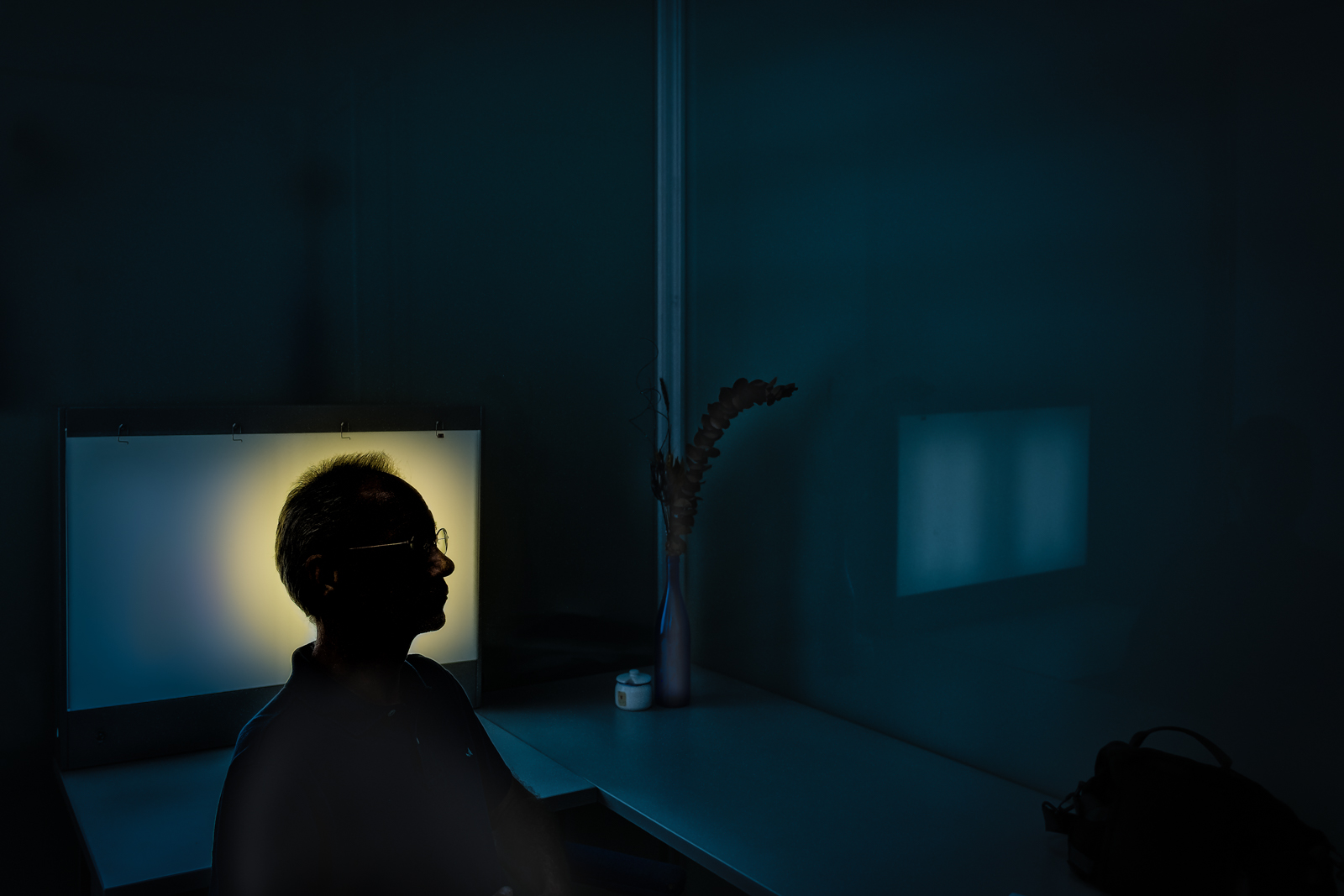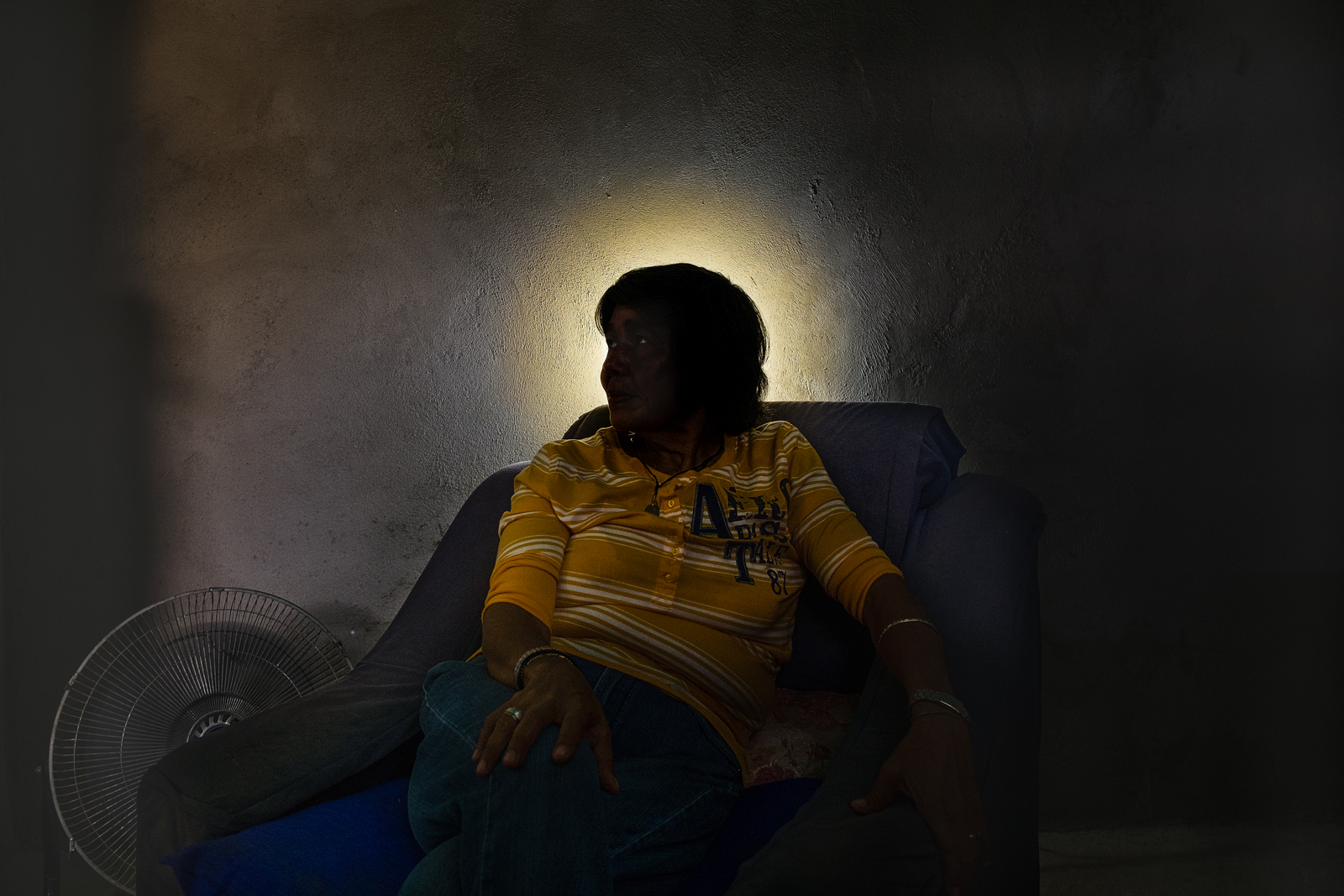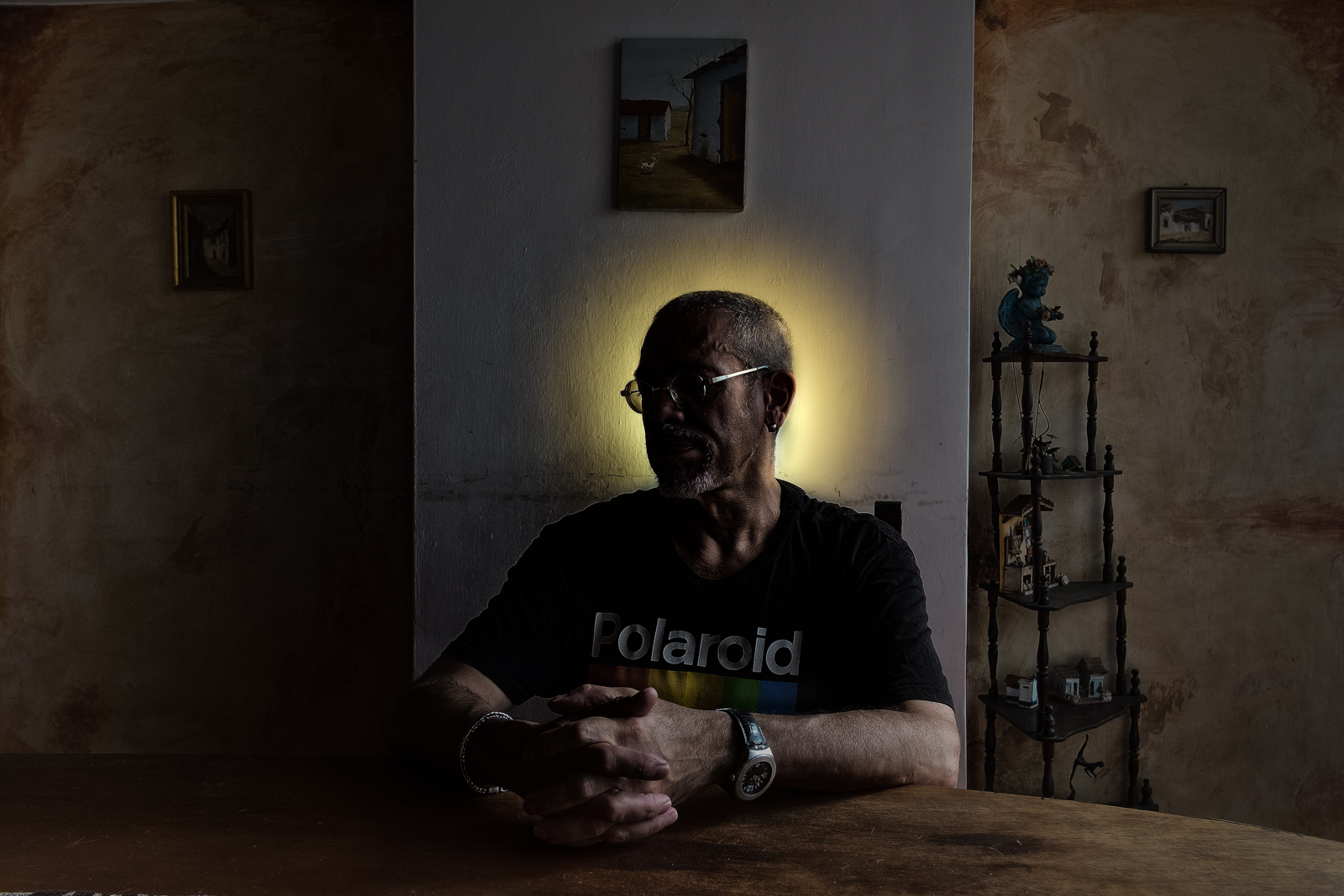Fighting All Alone
Venezuela is going through its worst moment in the fight against HIV. Today, on World AIDS Day, we bring you the reality of being HIV positive during national meltdown.


Photos: Gabriel Méndez
Since 1988, World AIDS Day has been celebrated every December 1st to raise awareness about the HIV pandemic and mourn the more than 36 million people who have died from it. We’ve come a long way since the dark days of “gay cancer,” but two million people still die every year due to AIDS.
In Venezuela, the death of actor Jorge Luis Morales, in 1992, represented the first time the disease was openly discussed by mainstream media. By 1994, the former Ministerio de Salud y Asistencia Social (MSAS) restricted HIV tests to epidemiological and medical uses only, forbidding its request as a requisite for job applications and it wouldn’t be until July 15th, 1999, that the Tribunal Supremo de Justicia (TSJ), through a famous sentence, declared the MSAS obligation to provide free antiretroviral treatment to all HIV patients. From that date on, the National HIV Program started running, and according to UCV’s Tropical Medicine Institute’s infectologist and national authority on the subject, Dr. Julio Castro, it made a difference until very recently. He saw how HIV infection went from being a death sentence to a chronic, treatable illness like hypertension or diabetes.
“Back in 1995, when the first antiretrovirals (ARVs) arrived to Venezuela, all we could do was see our patients wither away; today, no one should die from HIV.”
But in Venezuela, they do.
These are three stories of what it means to be seropositive in today’s Venezuela:
Hans
“I remember seeing cameras like that in East Berlin,” said Hans when he saw Gabriel’s Fuji, Leica-looking camera. He’s a 49 year-old German citizen who has lived in Venezuela most of his life. Diagnosed with HIV in 1999, when no one could’ve imagined what we would look like two decades later, he started receiving ARVs in 2003 and, until this June, went by without major trouble.
Initially, he received his drugs at the UCV main campus in Caracas and, a few years later, that was changed to Las Adjuntas. In August this year, he was forced to go even further:
“After two months without meds, I took a plane to Chile. I saw a doctor who gave me a mixture I hadn’t seen before. But I responded well to it.”
Hans brought as many pills as he could, but they’ll never be enough. ARVs must be taken daily and, by the time we talked, he had medicine for two more weeks; he’s going back to Chile to resupply.
“Machos have sex with many girls, machos don’t wear condoms, machos don’t get sick.” And machos perpetuate the problem.
“It’s not fair that this happens when there’s a program to take care of us.”
For him, dealing with discrimination is bad enough to care about the drugs too: “I speak several languages, so I applied for a job as touristic guide in Canaima. I was shocked when they asked me if I was HIV+. They argued the risk of cutting and infecting others while trekking was high. They said they’d call me back and never did.”
Beyond the recent crisis, he thinks, there’s a cultural problem in Venezuela that makes it particularly hard to fight the sickness: “This is a macho culture. Machos have sex with many girls, machos don’t wear condoms, machos don’t get sick.” And machos perpetuate the problem.
The government is also to blame:
“I can’t believe they have money for bullets, kalashnikovs and the bullshit they do for Cuba, but not for ARVs. They don’t care about us.”
Ana
A 57 year-old owner of a small bodega in Ocumare del Tuy, Ana has been HIV+ since 1995.
“I remember when I was diagnosed. I entered the University Hospital with herpes, and left with a positive HIV test.”
She was hospitalized earlier this year with pneumonia, after spending six months without treatment. “It all started with a flu and, suddenly, pneumonia was killing me.”
In the 9 days she remained in the hospital, Ana had to buy everything, from antibiotics to alcohol and syringes. Those without money to do so, didn’t make it. Five HIV+ women she met while hospitalized, died, two from tuberculosis, a third from candidiasis. Opportunistic, easily preventable diseases with a proper ARV treatment.
The government must open its eyes, people are dying of HIV in Venezuela. If you can’t help, let the NGOs bring in the drugs.
The HIV program is not what it used to, she agrees, and drugs arrive irregularly since 2012. According to Dr. Castro, the problem was, back then, all about bureaucratic details; today it’s entirely different.
“I didn’t experience issues until 2012, when I went 40 days without treatment. I had to get drugs from abroad. But the situation is worse than ever. If you have five thousand patients needing ARVs, they’ll only import for one thousand. If I don’t get them, all I can do is wait to die. The government must open its eyes, people are dying of HIV in Venezuela. If you can’t help, let the NGOs bring in the drugs.”
Elías
“I remember. It was 1997, the year Daniela ran for Miss Venezuela. I had been coughing for a couple days, despite having antibiotics. My doctor ordered an HIV test and it came positive.”
Elías is a 56 years old makeup artist. In 1997, he was in charge of makeup for Miss Venezuela’s iconic swimsuit parade. His personal friend, Daniela Kosán, lost to Verushka Ramírez, and was elected Miss Venezuela International. He lives in Caracas with his pet cats, and has been taking antiretrovirals for the last two decades.
“I went to see my infectologist on a Thursday, a few days after getting my diagnosis. She looked at my CD4 count and told me an HIV infection is considered AIDS only when the CD4 count was under 200 cells. Mine was 184.”
With help from some of the Miss Venezuela models, who put him in touch with the a few key NGOs, Elías got the incredibly expensive treatment for free. The national state-run HIV program, that eventually provided those drugs to enrolled patients, wouldn’t take form until 1999.
“If I could talk to the guys in charge of importing all medicines” he says almost to himself, “I’d tell them I hope their families are never in our position.
Elías got in the program and received his drugs regularly until 6 months ago.
“Sometimes the ARVs would take a couple more days to come. When that happened, I talked to local NGOs and they provided me with pills for five or ten days, until the Ministry drugs arrived. But six months ago, they disappeared. I freaked out and started looking abroad for them, but the dose required for just one month costs from $600 to $3,000. I can’t afford that.”
“About two months ago I gave up and left it in God’s hands. I don’t have contact with my family, so my biggest worry was what would happen to my cats after I died.”
Two weeks ago, though, the medicines reappeared. A religious organization brings some from the United States and, although it’s not the combination he uses, it’s a reliable source for when the state-sponsored treatment fails.
“If I could talk to the guys in charge of importing all medicines” he says almost to himself, “I’d tell them I hope their families are never in our position. They must have dollars to buy all the meds they need, but coño, think about us, you assholes.”
Fighting the good fight
With lack of official data, the total number of infected patients remains a mystery. Dr. Castro thinks it rounds 0,3% to 0,6% of the population, the traditionally accepted prevalence in most Latin American countries. Only 60,000 of those are enrolled in the national HIV program, and most go through the experience Hans, Ana and Elías live.
“This is the worst moment of the HIV epidemic in Venezuela” says Dr. Castro, trying to explain the recent 75% increase in death rates. “It’s like we’re back to the early 90s, we lack the ARVs, the reagents to diagnose patients and the main pillar to fight this disease, prevention campaigns, are nonexistent.”
This December 1st, try to put yourself in the shoes of the Venezuelan seropositive community. Their crisis is very real, and should move us all to act before it gets worse. Things will hardly get better, but remaining silent is as bad as stopping imports of those antiretrovirals.
Caracas Chronicles is 100% reader-supported.
We’ve been able to hang on for 22 years in one of the craziest media landscapes in the world. We’ve seen different media outlets in Venezuela (and abroad) closing shop, something we’re looking to avoid at all costs. Your collaboration goes a long way in helping us weather the storm.
Donate







